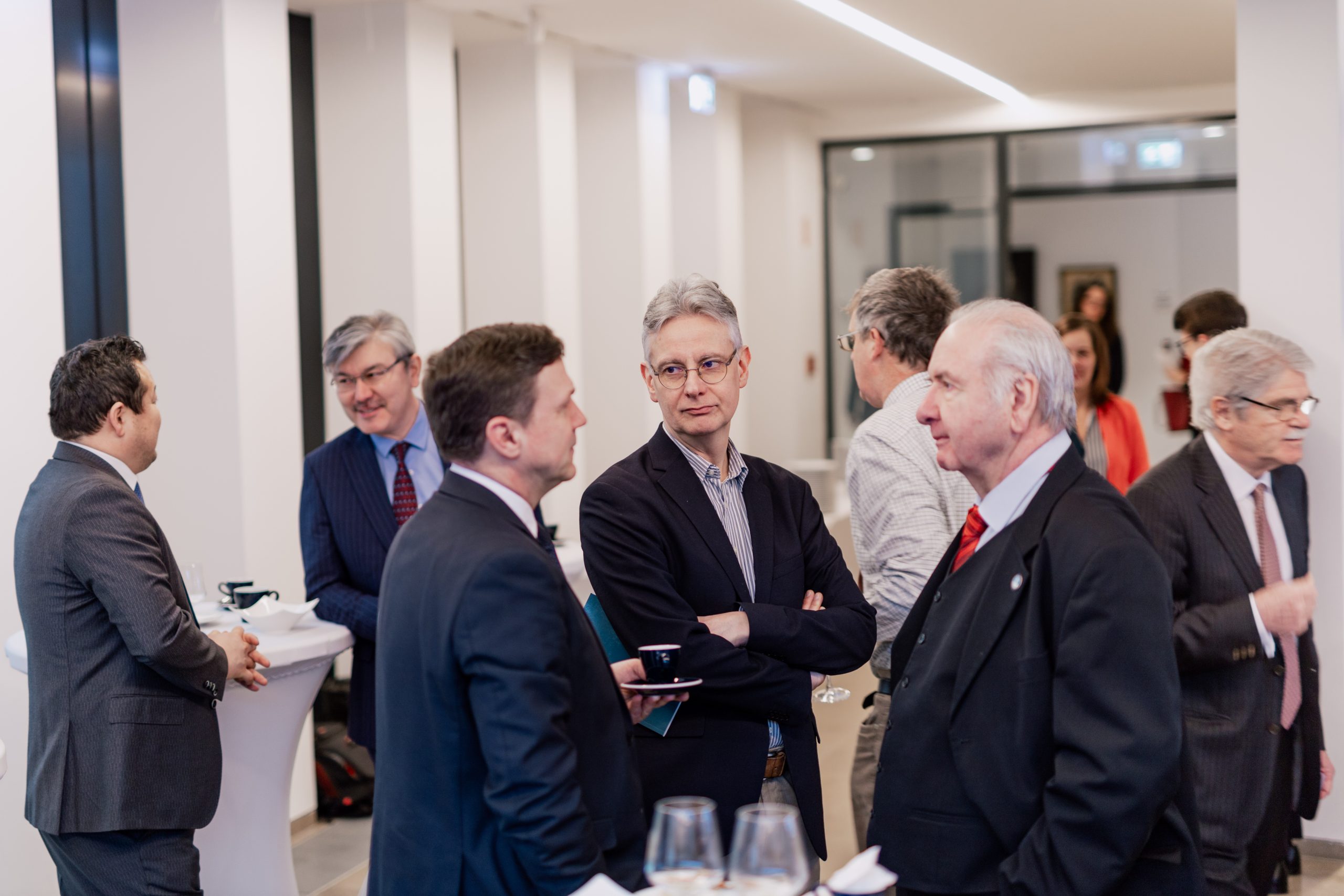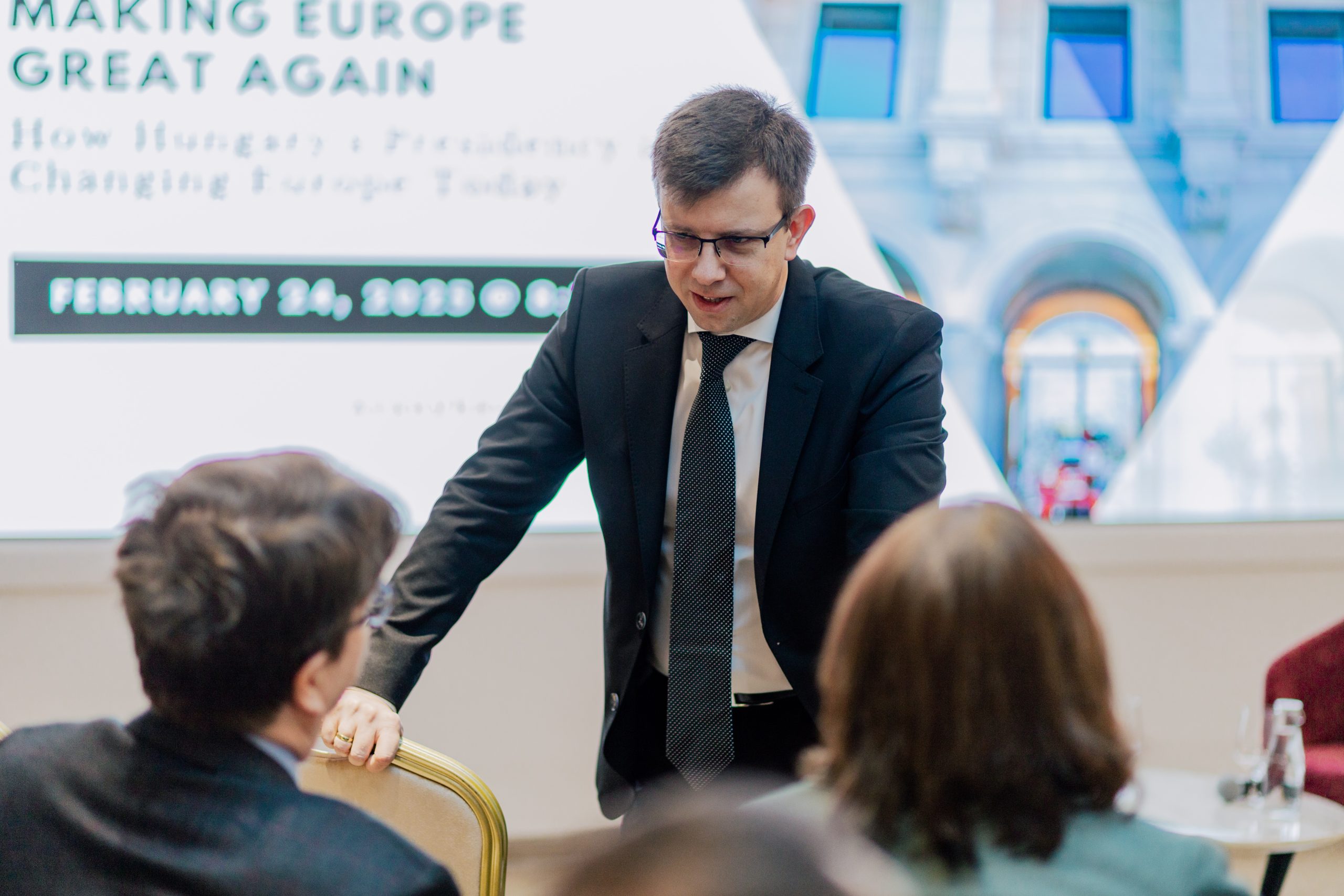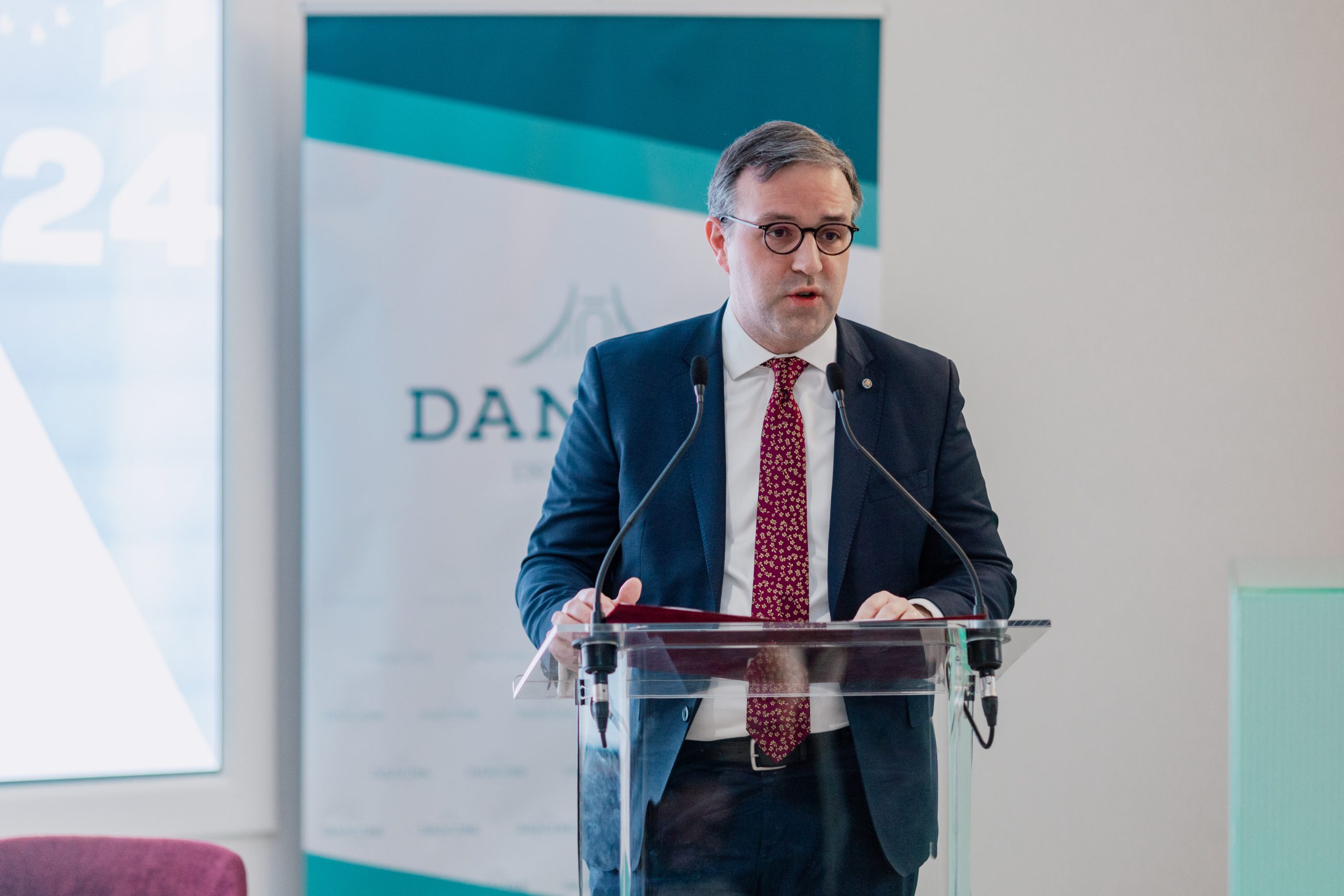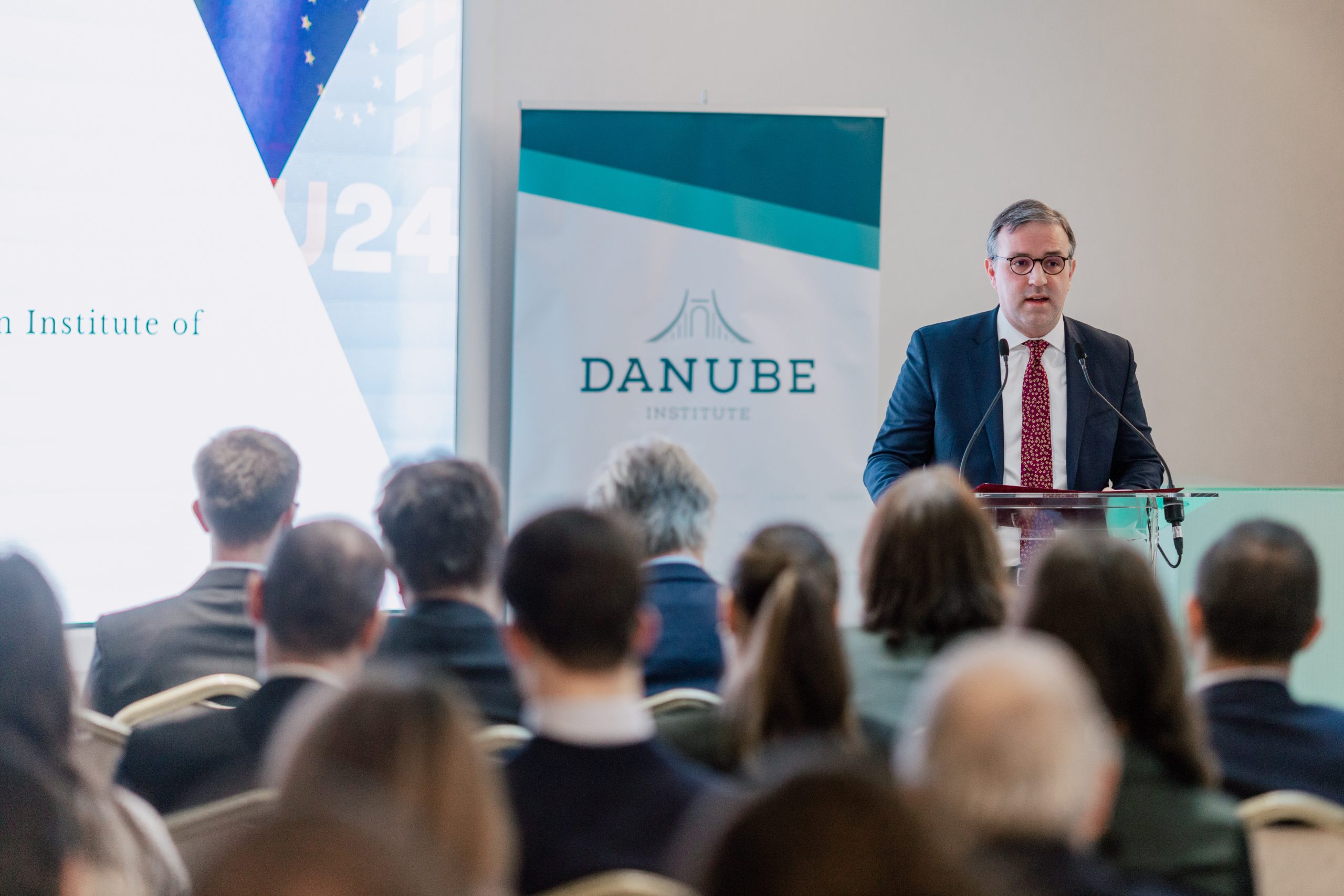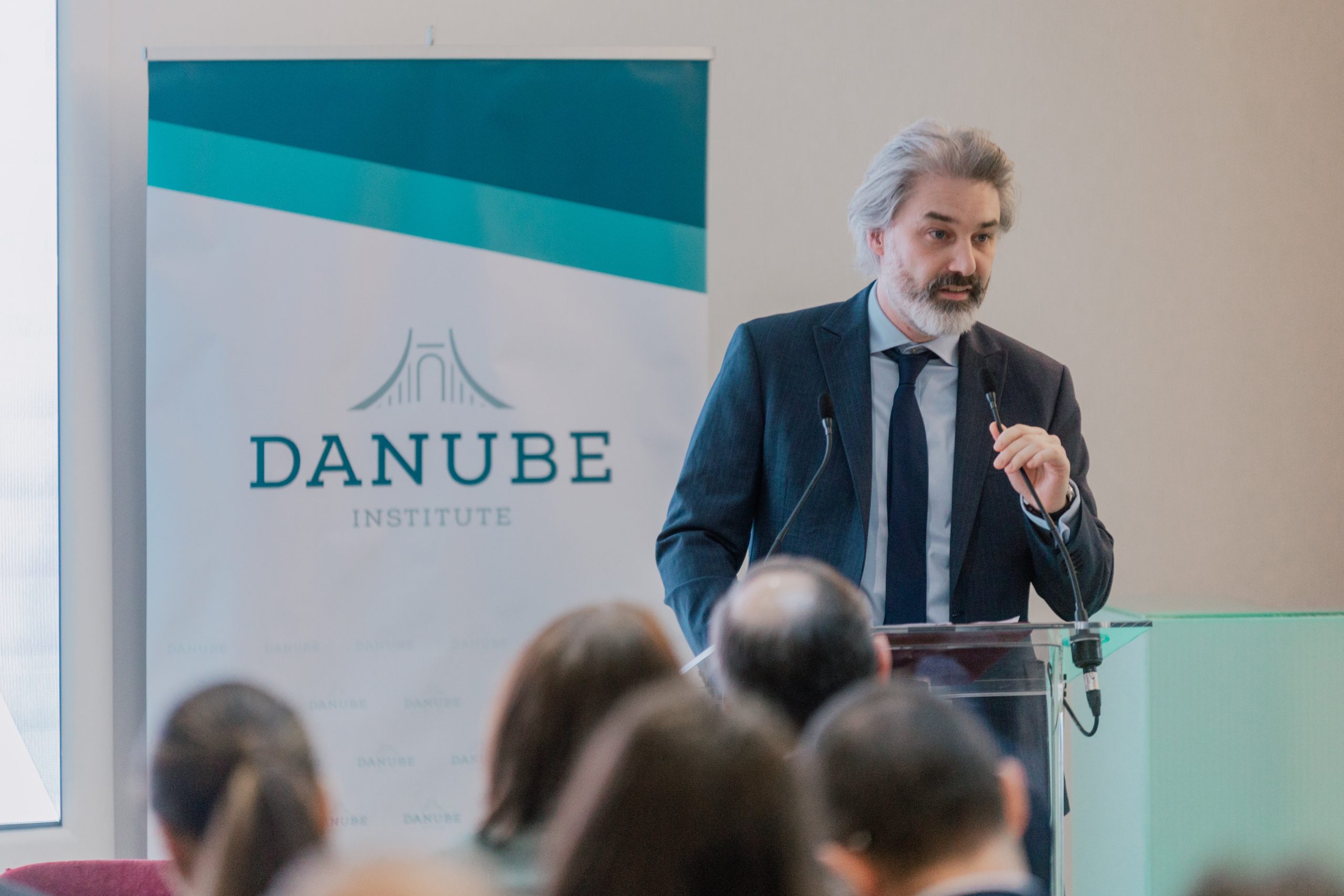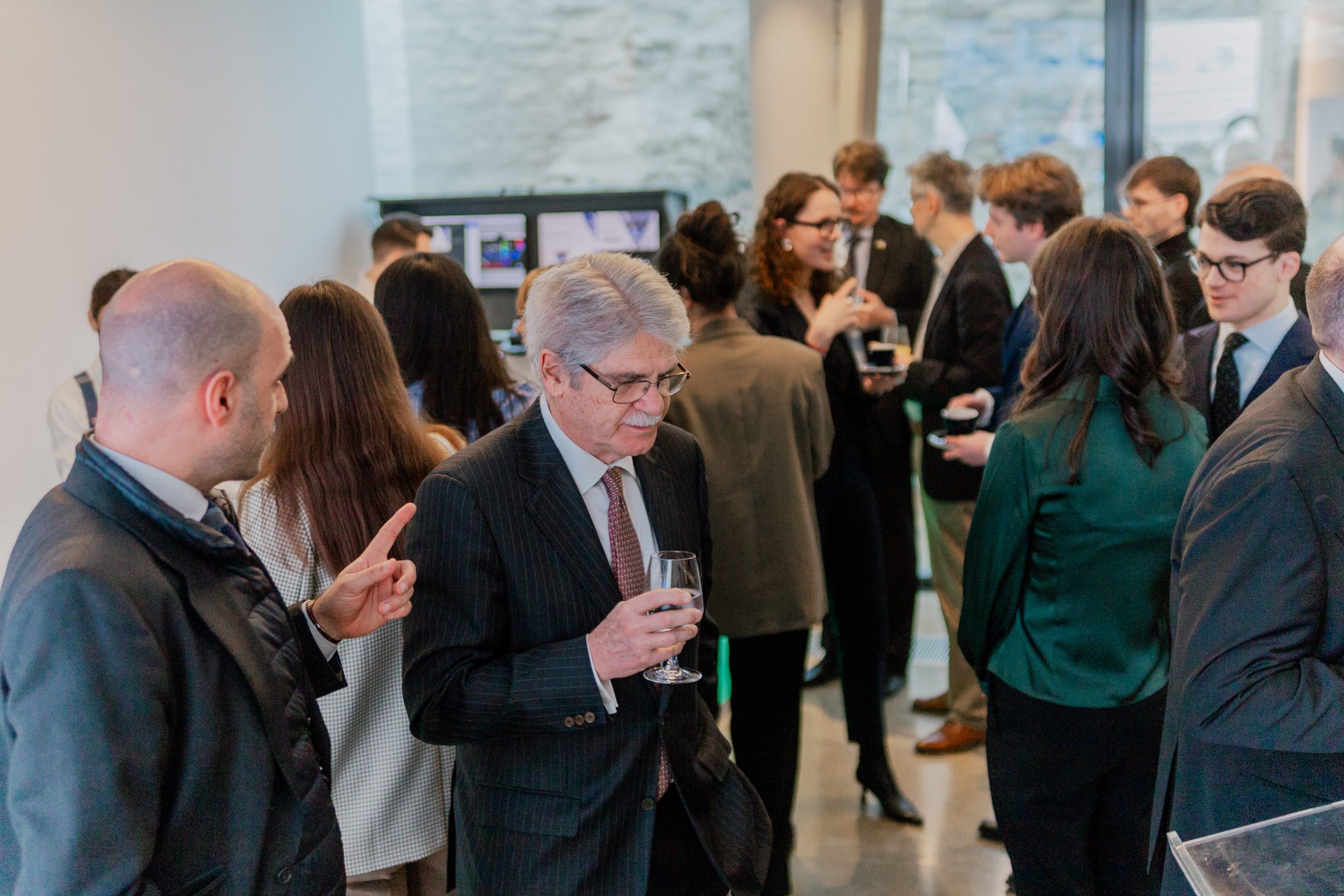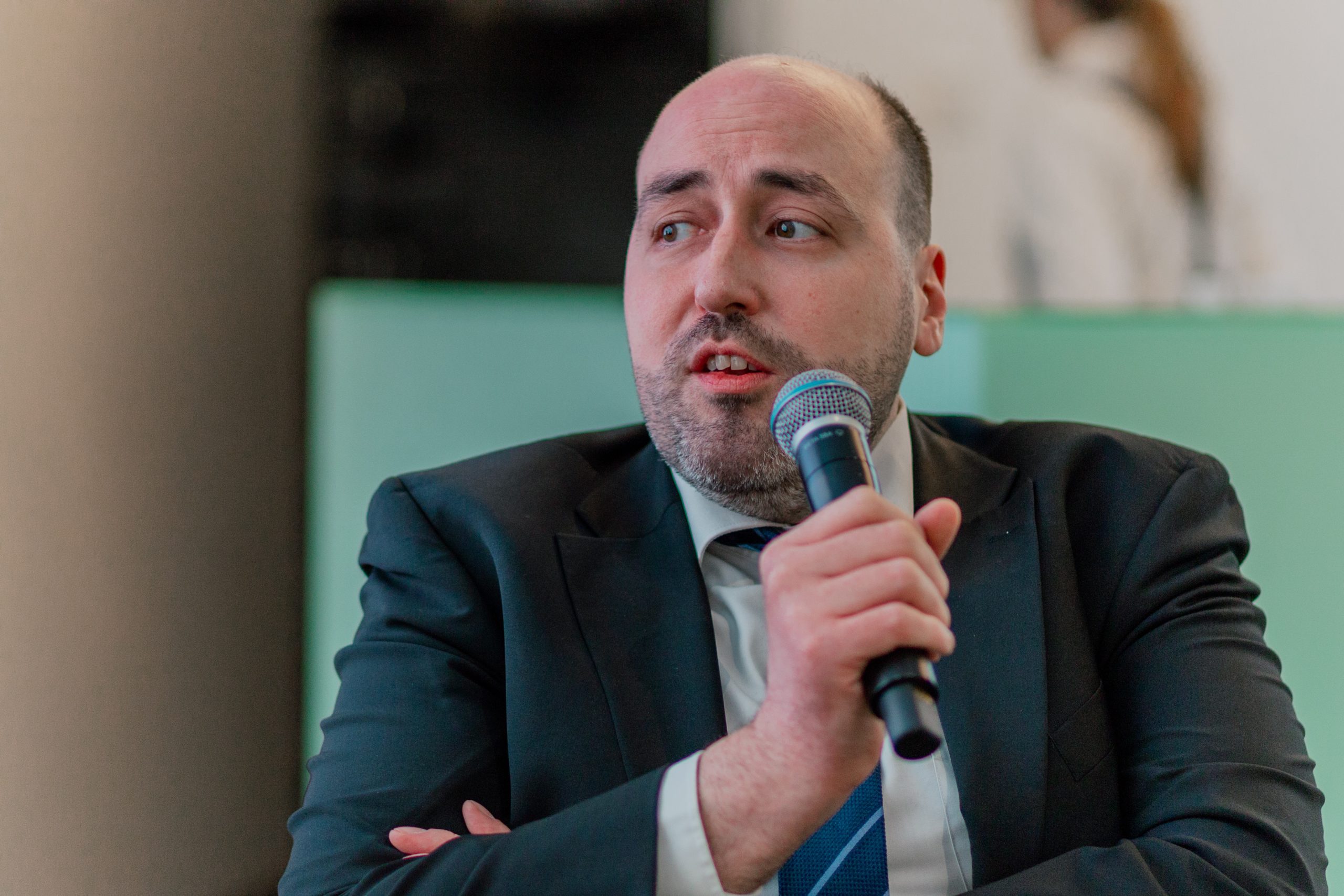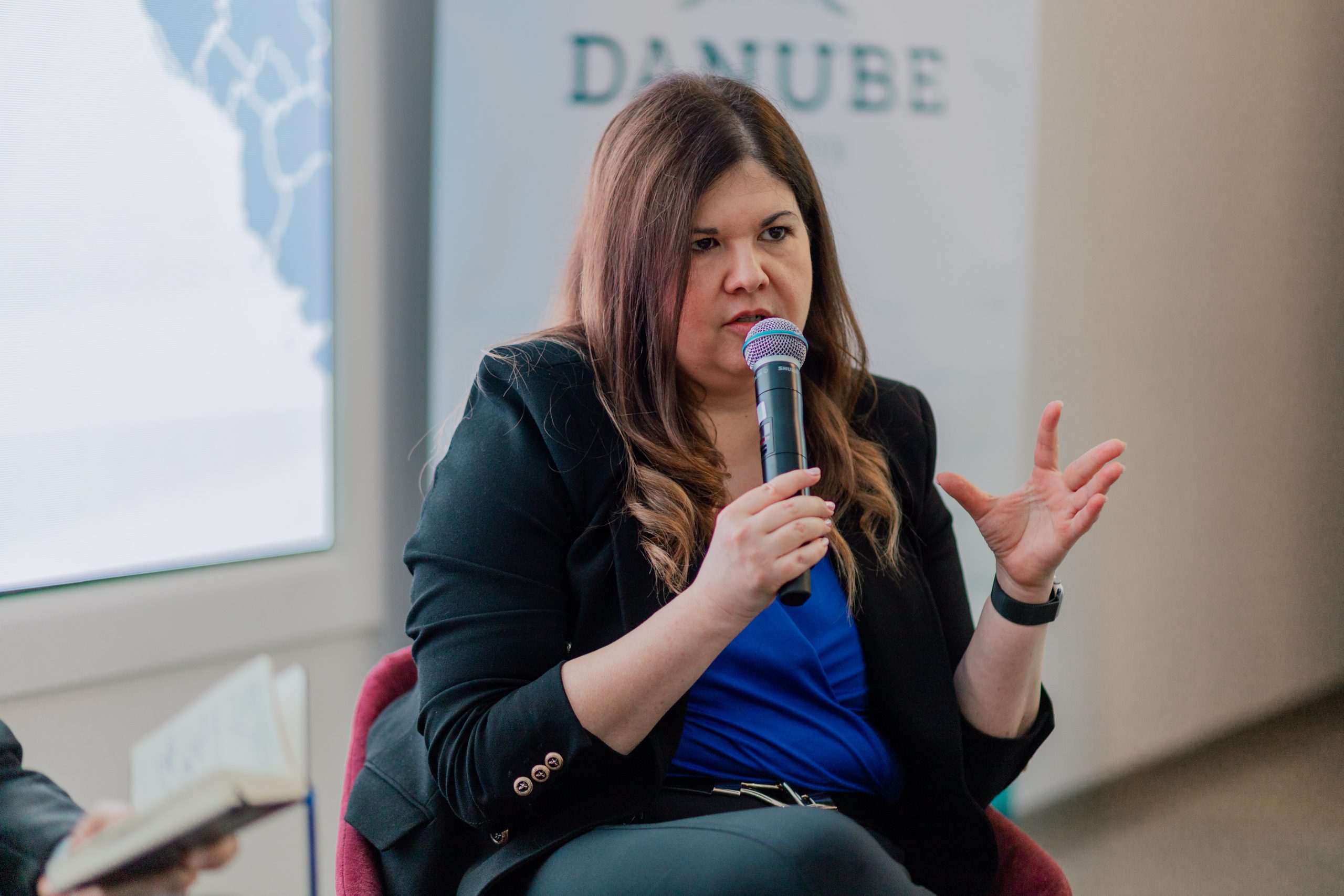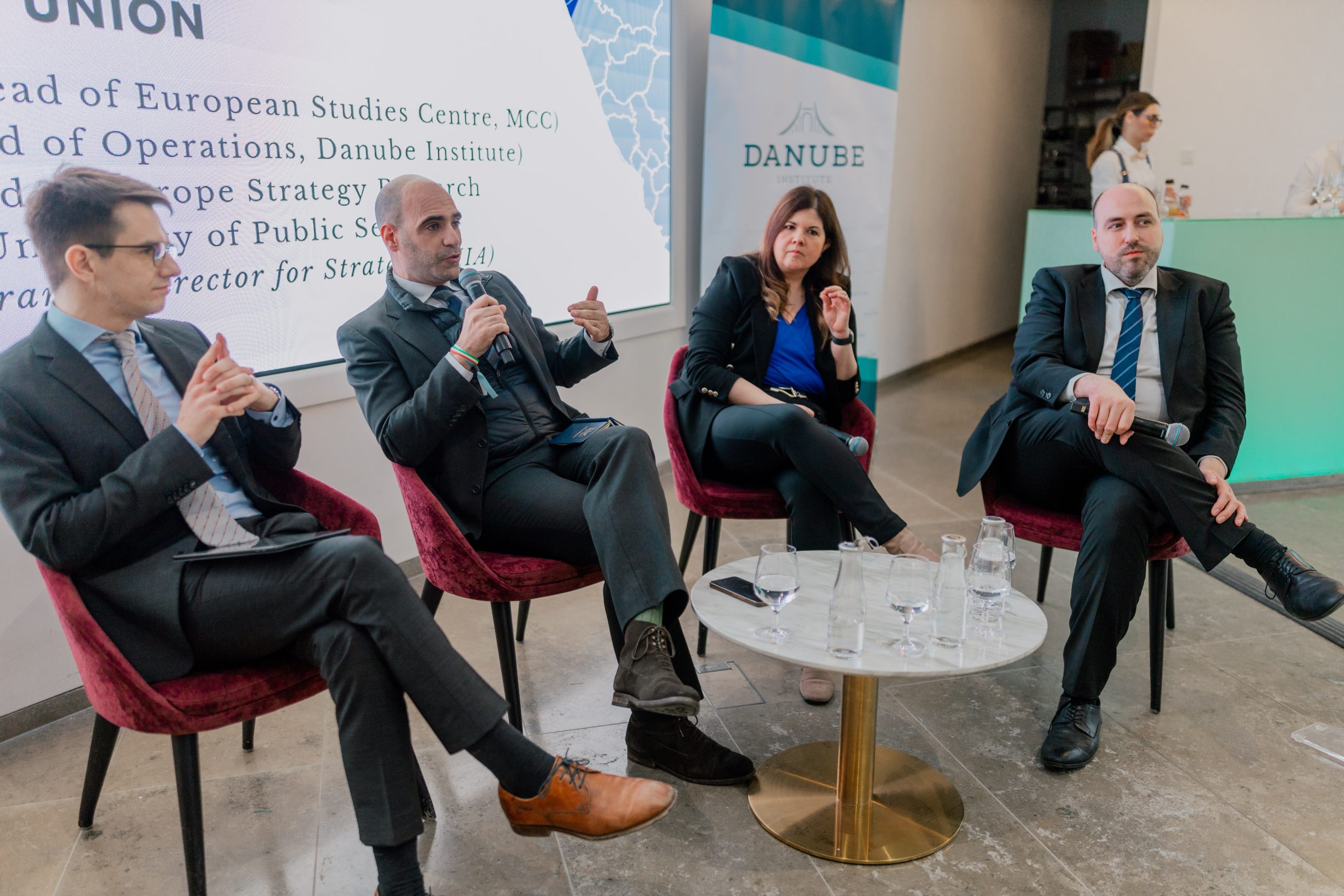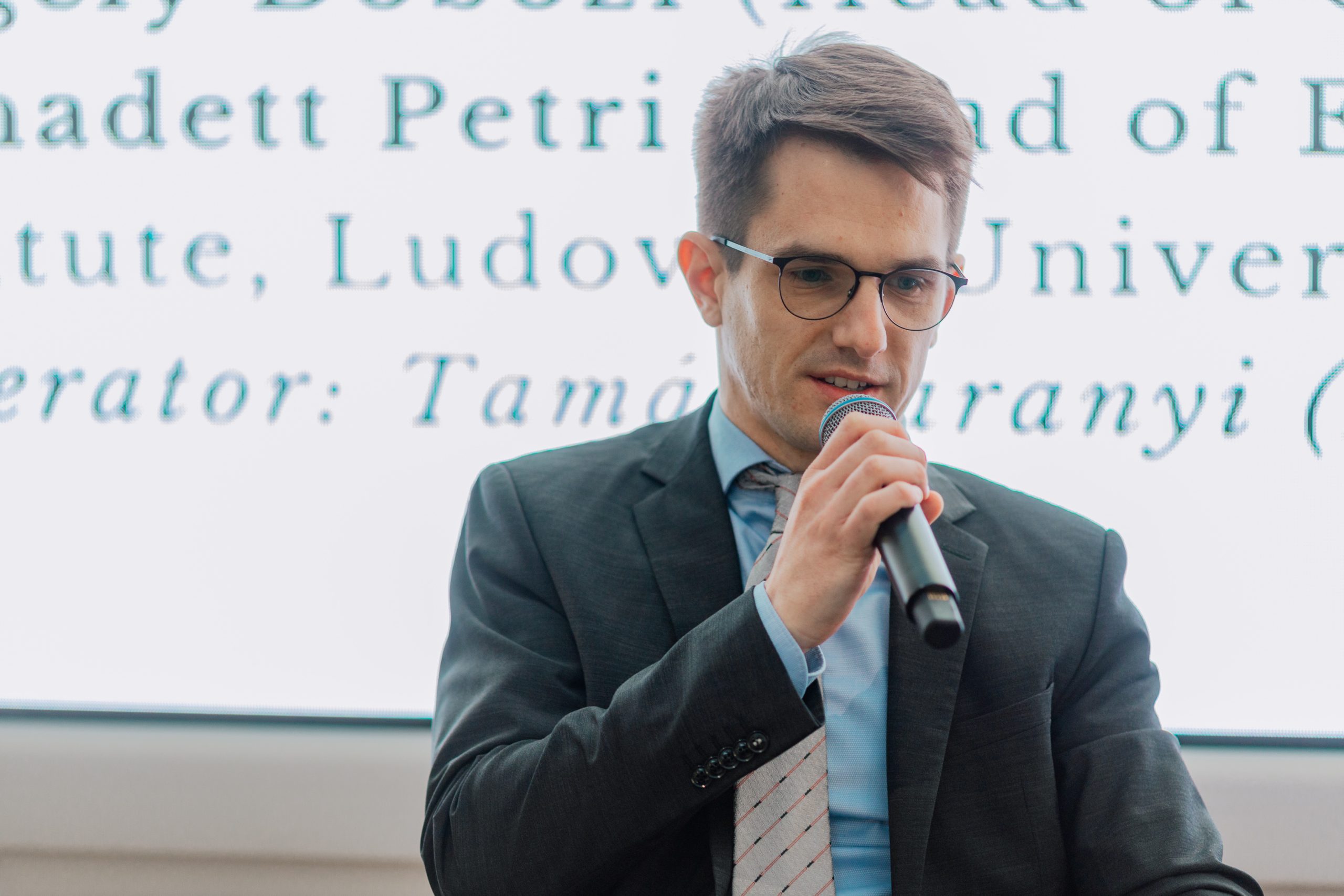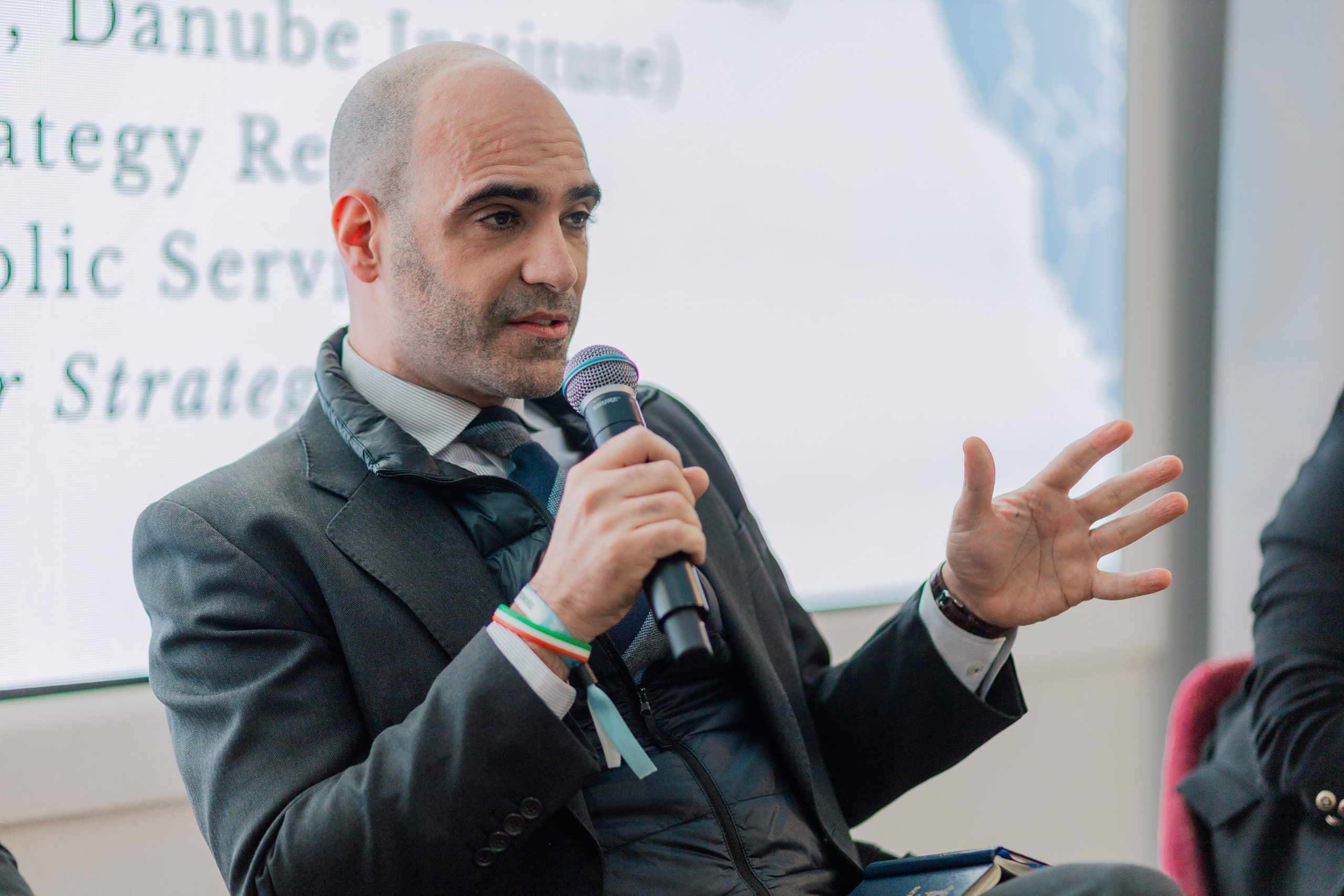On the morning of 24 February 2025, the Hungarian Institute of International Affairs and the Danube Institute held an event entitled Making Europe Great Again – How Hungary’s Presidency is Changing Europe Today at the Aranybástya Restaurant in Budapest. The event aimed to assess the Hungarian EU Presidency in the second half of 2024 and its aftermath.
In his introductory remarks, Gladden Pappin, President of the Hungarian Institute of International Affairs, said that we are living in a period of uncertainty. In this sense, the Hungarian presidency was not a typical one either: it had to provide an alternative vision for the EU in a very critical and sceptical atmosphere. However, it was successful in doing so, setting as its goal the creation of a strong, sovereign and competitive Europe, while the challenges were economic stagnation, insufficient defence capabilities and a lack of geopolitical vision.
The Hungarian recipe, according to Pappin, is therefore to increase competitiveness, reduce bureaucratic obstacles, prioritise defence capabilities and make substantial progress in EU enlargement – especially in the Western Balkans – while keeping the process merit-based. The Hungarian presidency has provided the EU with a clear and positive agenda to address these problems. It should be up to the EU to take steps to achieve these in its own interests, unconstrained by ideological considerations.
After Gladden Pappin, Calum Nicholson from the Danube Institute opened the event. Nicholson recalled the motto of the Hungarian Presidency, which was MEGA – Make Europe Great Again! He said it was a nostalgic, romantic slogan, but the EU should not be a nostalgic slogan, because while a few decades ago the EU and US economies were the same size, today the EU is only 60% of the economic power of the US, and in high-tech areas such as tech, around 90% of European workers would be willing to move to the US if offered a good deal. On the Hungarian presidency’s programme, Nicholson stressed that its spirit is as important as its content and that recent events (such as J.D. Vance’s Munich speech) seem to have been a vindication of the Hungarian side.
The introductory speeches were followed by a discussion with János Bóka, Minister for European Union Affairs, led by Ákos Mernyei, Ambassador Travelling Ambassador and Presidential Advisor of the Hungarian Institute of Institute Affairs.
The first topic was about the “legacy” of the Hungarian presidency, i.e. how to create room for manoeuvre in such an unsupportive political environment. Bóka said that first of all it had to be clarified whether the Hungarian presidency would be political or administrative. As the EU was in the process of changing institutional cycles, it was necessary to give it the right political impetus*.* The Hungarian prime minister’s peace mission served this purpose: to show that a change from the ‘business as usual’ approach was needed – all sides in a war should be talked to, even if this is not the consensus view in the EU. There were hysterical reactions to this action from the Hungarian side, but the Hungarian presidency has managed to recover from this, as the informal European Council summit in Budapest in November and the European Political Community meeting clearly show.
Asked what the EU needs to do to regain its competitiveness, the minister said that the issue has been on the EU agenda for some time: the competitiveness gap between Europe and the US has been diverging since 2008. However, the problem is wrongly not big enough – Europe still enjoys a high level of prosperity, which makes many European leaders complacent. But European prosperity should not be taken for granted. The need for change is highlighted in the Draghi and Letta reports, which are expert recommendations – complemented by the Budapest Competitiveness Declaration adopted in November. The impact of these will be reflected in this year’s Commission legislative proposals. It is also important to note who sets the policy direction and takes responsibility for decisions in the EU. What we see is that when the EU is wrong, it is the leaders of the Member States who ultimately bear the responsibility, because they are replaced by their electorates, not the leaders of the European institutions. However, national leaders have no direct influence over decisions that affect European competitiveness, because these decisions are taken at EU level and no one can legally bind the Commission to what legislation it presents.
The discussion also covered EU enlargement. Minister Bóka said that the last time the EU successfully concluded accession negotiations (with Croatia) was in 2011, during the previous Hungarian presidency, and that the current presidency had another success in store. At the end of 2024, Romania and Bulgaria will become full Schengen members, and the accession process in the Western Balkans will be given a new impetus: for the first time since 2017, new chapters have been opened. All this has been facilitated by the unique position of the Hungarian presidency, which has good relations with both the Western Balkans and some of the countries that are opposed to enlargement.
On migration, Bóka highlighted the double standards. While the EU expects solidarity when it comes to the distribution of asylum seekers, this is no longer the case when it comes to the protection of external borders. He stressed that if the EU Court of Justice finds the Italy-Albania asylum agreement to be contrary to EU law, it will take away our only alternative. The courts should not stand in the way of creative solutions.
Finally, the Russian-Ukrainian war was also discussed. The minister said that the moral and legal situation is clear: Russia is the aggressor, Ukraine the victim. This should serve as a starting point, but we cannot stop there. Innocent lives must be protected and we must work for a safe neighbourhood for Hungary. War cannot be decided on the battlefield. However, the US-Russian negotiations, as he understands them, are not about Ukraine, but about the future US-Russian relationship, of which the situation in Ukraine is only one part of the European security architecture. It is clear that we will have to be at the table for certain parts of the negotiations that also concern Europe. But for whom? The US would not accept EU leaders because they do not have a clear mandate. There is no clear answer to that at the moment. The answer to the question of what we will have to negotiate here is not the future of Ukraine, because it is a sovereign state – that is for them to decide. It is in this forum that we will have to build the European security guarantees for the future.
In the second half of the morning, the conference participants were treated to a panel discussion entitled “Resetting the Unbalances of the European Union”, featuring Bernadett Petri, Head of the Institute for European Strategy Research at the National University of Athens, Gergely Dobozi, Head of Operations at the Danube Institute and Rodrigo Ballester, Head of the Center for European Studies at Mathias Corvinus Collegium. The discussion was moderated by Tamás Baranyi, Strategy Director of the Hungarian Institute for International Affairs.
At the beginning of the discussion, Gergely Dobozi pointed out that since the concept of the rule of law has become a political concept, its use for lawfare purposes has been on the rise. In his opinion, the European Union is not able to simultaneously enforce the concept of the rule of law, the preservation of the sovereignty of the member states and economic prosperity.
In Bernadett Petri’s opinion, beyond the East-West divide, there is a fundamental centralisation in the European Union, which makes little or no effort to take into account the specificities of each region, despite the fact that cohesion is a fundamental value for the EU. Hungary sees this problem and is trying to do something to protect its own region.
Rodrigo Ballester explained that the European Parliament in its current state is extremely compromised and has lost a lot of its ability to function. In his opinion, the question to be considered is whether the EU prefers to stick to its integrity or to set out an ideology to follow and exclude anyone who disagrees with it.
Returning to the concept of the rule of law, Gergely Dobozi pointed out that much of the debate on the rule of law stems from the lack of a uniformly accepted and delimited definition. However, for Hungary it is a dignified concept, despite which he sees its continuous erosion in the European Union. He cited the case of Poland as an example, stressing that under the previous Polish government Hungary and Poland were together “bad students” of the EU who had to be punished, while since the new Polish leadership came to power Hungary has remained alone in this status, despite the fact that in the areas previously criticised, practically nothing has changed in Poland.

